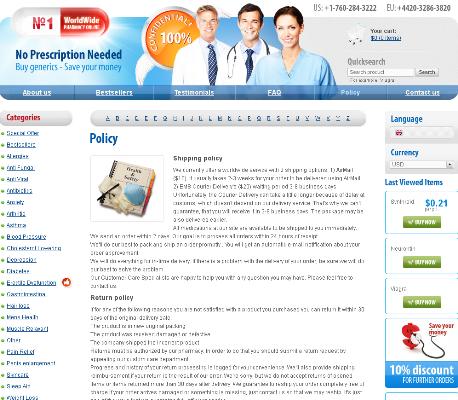Zocor Vs. Other Statins: Comparative Effectiveness
Understanding the Role of Statins in Heart Health
Statins have revolutionized heart health management by reducing cholesterol levels. These drugs work by inhibiting the enzyme HMG-CoA reductase, crucial in cholesterol production. Zocor, like its counterparts, effectively minimizes the risk of cardiovascular events. It's essential to grasp how statins fit into a broader treatment plan to mitigate heart disease dangers.
Comparative Effectiveness of Zocor
| Statin | Effectiveness | Common Side Effects |
|---|---|---|
| Zocor | High | Muscle pain, liver issues |
| Lipitor | Very High | Muscle pain, digestive problems |
| Crestor | Very High | Muscle pain, headache |
Understanding the "script" intricacies and proper SIGs (directions) is critical for maximizing statin benefits in heart health.
Zocor: Mechanism, Dosage, and Primary Benefits

Zocor, a popular statin, works by inhibiting the enzyme HMG-CoA reductase, thereby reducing cholesterol production in the liver. This mechanism effectively lowers LDL cholesterol levels, which is crucial for heart health. Typically, Zocor is prescribed in dosages ranging from 5 to 40 mg daily, depending on the patient's individual needs and health conditions. One of the primary benefits is its proven ability to reduce the risk of heart attacks and strokes.
Patients often receive their 'script for Zocor after a thorough Meds Check with their healthcare provider. Despite potential Side Effects like muscle pain, the overall impact on reducing 'Pill Burden' makes Zocor a reliable choice in cardiovascular health management.
Comparing the Efficacy of Zocor and Lipitor
When assessing the effectiveness of Zocor and Lipitor, clinical trials indicate that both medications significantly reduce LDL cholesterol levels, a key factor in heart health. However, some studies suggest that Lipitor might have a slight edge over Zocor in achieving target cholesterol levels more rapidly. This marginal advantage can be crucial when doctors need to see results stat to manage acute cardiovascular risk.
From a practical perspective, the choice between Zocor and Lipitor often hinges on patient-specific factors, including how well each medication is tolerated and individual health histories. Some patients may experience side effects more acutely with one medication over the other, requiring a switch. Despite being generics, even minor differences in compound formulations can influence effectiveness and patient comfort, ultimately guiding the final prescription decision.
Zocor Vs. Crestor: Which Is More Effective?

When it comes to measuring effectiveness between Zocor and Crestor, clinical trials and studies provide solid insights. Zocor, also known by its trade name as simvastatin, has been a staple in the world of statins, well-known for lowering LDL cholesterol and boosting heart health. However, Crestor, or rosuvastatin, has gained significant attention for its high potency, often requiring lower dosages than Zocor to achieve similar results. Some studies indicate that Crestor may offer superior LDL reduction and a greater increase in HDL cholesterol, making it a formidable contender.
However, the real-world effectiveness of these drugs can also depend on individual patient profiles and coexisting conditions. Compliance is key, and sometimes the "script" a patient receives may spell the difference in their treatment journey. Another aspect to consider is the potential side effects. While Crestor might offer more potent results, it also has a slightly higher side effect profile compared to Zocor. Understanding the “sig” and adjusting the dose accordingly can make a substantial difference in the effectiveness and tolerability of these medications.
Side Effects: Zocor Compared to Other Statins
When considering the side effects of Zocor compared to other statins, patients should be aware of the unique profile each medication presents. Zocor, or Simvastatin, is generally well-tolerated, but it can cause muscle pain, known as myopathy. This side effect can be particularly severe if the dosage is not properly managed, adhering to the "Sig".
One of the key differences between Zocor and other statins, such as Lipitor or Crestor, lies in their potential for drug interactions. Zocor’s interaction with certain medications can increase the risk of muscle-related side effects. Such risks can be minimized by a rigorous review known as DUR (Drug Utilization Review), a practice often employed by Pharm Techs.
Moreover, while all statins can potentially lead to elevated liver enzymes, Zocor has been specifically noted for a particular sensitivity. Regular "Meds Check" appointments can help monitor and mitigate these risks, ensuring optimal patient safety.
Lastly, Zocor can sometimes cause a "hangover" effect of fatigue and discomfort, which may not be as pronounced with other statins. These nuances emphasize the importance of personalized medication management, considering both efficacy and tolerability.
| Side Effect | Zocor | Other Statins |
|---|---|---|
| Muscle Pain (Myopathy) | Moderate to High Risk | Moderate Risk |
| Drug Interactions | Higher Probability | Lower Probability |
| Liver Enzyme Elevation | Noted Sensitivity | General Risk |
| Fatigue | Occasional | Rare |
Cost and Accessibility: Zocor Versus Its Competitors
When comparing Zocor to other statins in terms of cost and accessibility, there are several factors to consider. Zocor, as a generic, often presents fewer "label sticker shocks" compared to some of its branded competitors like Crestor. This makes Zocor a more wallet-friendly option for many patients. However, the "insurance reject" rate can vary depending on the patient's coverage and formulary restrictions. Accessibility-wise, Zocor’s availability in most "drive-thru" pharmacies makes it a convenient choice for routine prescriptions, reducing the need for repeated visits or dealing with the hassle of insurance "prior auth" requirements.
Another key element is the cost variability between different statins when insurance coverage is factored in. Some statins, despite their "Rx" status, might be placed higher on a formulary tier, translating into higher out-of-pocket costs for patients. Given that Zocor is a "generic," it generally falls into preferred tiers, making co-pays lower. This cost-effectiveness, combined with its widespread availability, ensures that Zocor holds a competitive edge, especially for those who may experience "sticker shock" with other newer, brand-name alternatives.
Moreover, for patients who frequent "pharm tech"-staffed counters, the streamlined process of filling Zocor prescriptions makes it a straightforward choice. The familiarity of Zocor within the pharmaceutical landscape means fewer "red flag" issues and smooth verifications. Though variations exist in accessibility based on location and insurance plans, Zocor's entrenched position in the market means it remains a reliable, cost-effective option compared to many other statins.

